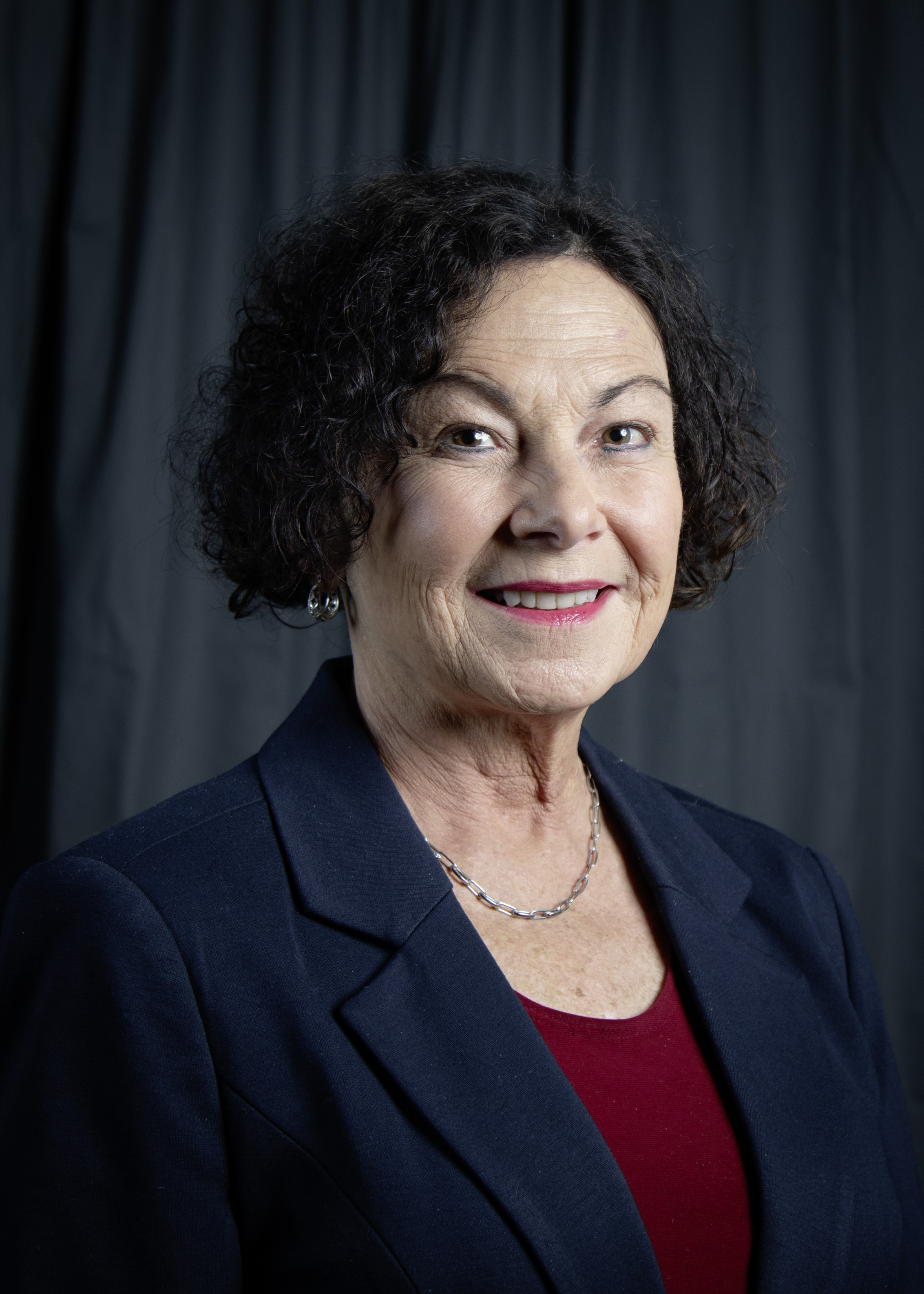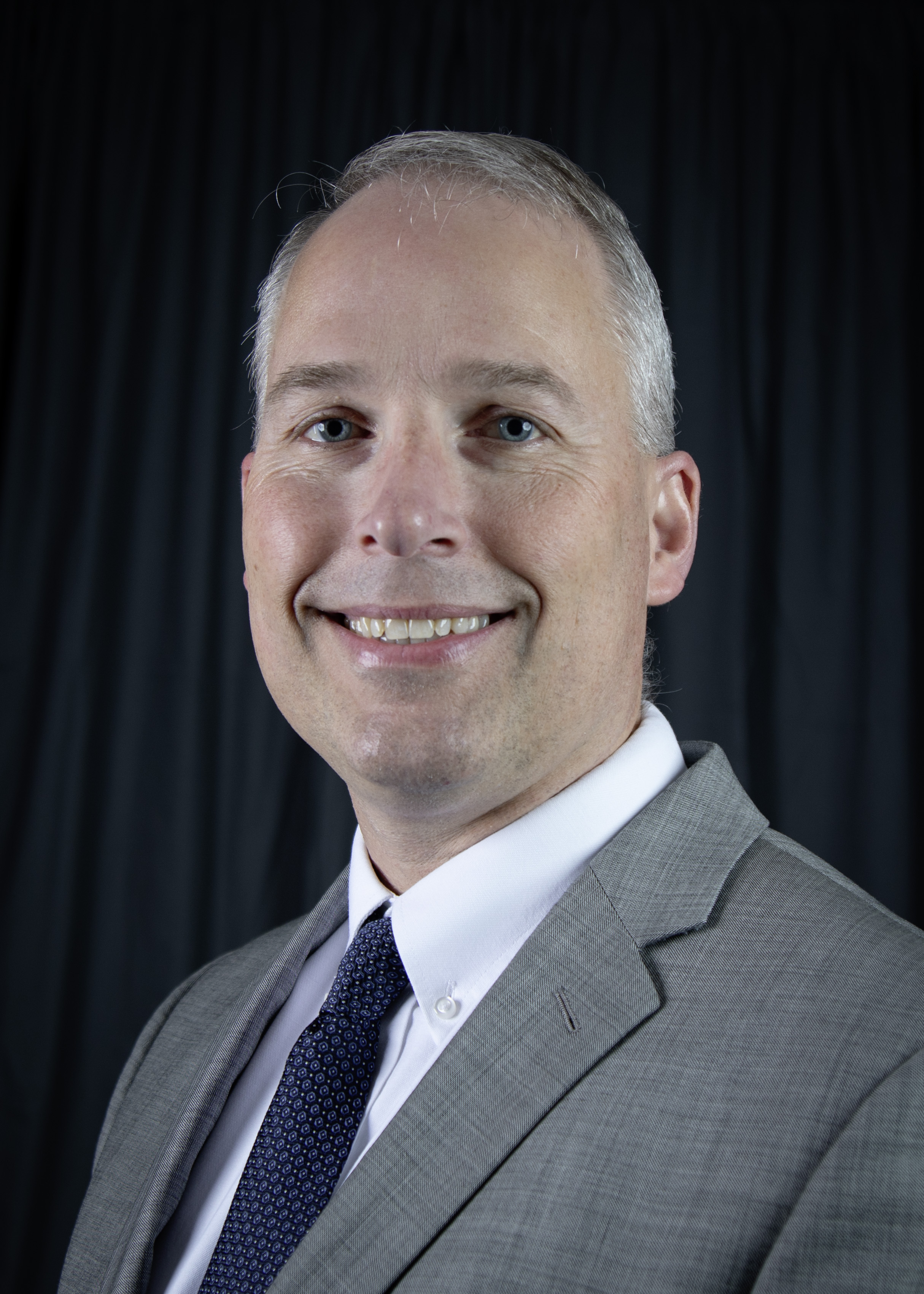Dive Deeper into Physical Therapy Regulation with Our New Resource Directories!
According to the FSBPT Membership Survey, members often struggle to locate the appropriate FSBPT resource due to the overwhelming number of options available. We listened to that valuable feedback, and we created two new resource directories designed to make finding relevant information easier:
- Community Resources Directory
- Valuable resources any stakeholder can access!
- Member Resources Directory
- This includes everything in the Community Resources Directory, plus additional resources just for FSBPT members.
Both directories contain a wealth of webinars, articles, and documents on a wide range of topics, including telehealth, artificial intelligence, and investigations. They both feature a user-friendly interface that allows you to easily search by resource type or topic. This makes it simple to find the information you need quickly and efficiently.
To access the directories, log in to the FSBPT Portal. You will see the resource directories in the top menu. We hope that these new directories will be invaluable resources for both FSBPT members and the broader physical therapy and regulatory communities.
Share Your Webinar and Annual Education Meeting Ideas!
We are accepting presentation ideas and proposals for 2024 webinars and in-person sessions at the 2024 Annual Education Meeting in Cedar Rapids, Iowa.
If you have a specific idea, please submit a proposal. However, we are also interested in learning about jurisdictions' experiences with regulatory topics and your general ideas on what issues we should examine. We encourage all board members, administrators, and other stakeholders to share topics and ideas with us. You can also watch webinars and meeting sessions on FSBPT's YouTube Channel to learn what we've recently covered.
Funded Members for the Leadership Issues Forum and the Annual Education Meeting
This year, FSBPT will fund the following attendees at LIF and the Annual Education Meeting. We contacted administrators with instructions on selecting delegates (voting and alternate) and identifying the funded administrator.
Leadership Issues Forum, July 13-14, Arlington, Virginia
- Voting Delegate
- Board Administrator
Annual Education Meeting, October 31 to November 2, Cedar Rapids, Iowa
- Voting Delegate
- Funded Alternate Delegate
- Board Administrator
Louisiana Implements a Real-Time ELDD Link
Louisiana has broken new ground, becoming the first state to connect directly with FSBPT’s Examination, Licensure, and Disciplinary Database (ELDD) through a real-time API. While other states report data using an API, they are either transmitting data every 30 minutes or once a day.
This API allows Louisiana to automatically send licensure data in real time, ensuring the ELDD reflects the most up-to-date information. There are no gaps or delays, which translates into faster response times, enhanced security, and significant efficiency gains.
Real-time notifications allow individuals to renew their license and immediately purchase a new PT Compact privilege that will expire on the new expiration date. Louisiana has also implemented the PT Compact API. As a result, once a person purchases a Compact privilege, their information as a privilege holder is instantly pushed into Louisiana's database. This new system is also beneficial for consumers, as they can now easily verify if anyone has the legal authority to practice physical therapy in Louisiana by checking the same license lookup page.
Louisiana's pioneering move sets a compelling example for other states, paving the way for a more interconnected and efficient physical therapy landscape. FSBPT remains committed to ELDD advancements, ensuring the database continues to serve as a vital resource for all stakeholders.
Learn more about the compact API for active compact states by emailing eldd@fsbpt.org.
Topics at the Leadership Issues Forum
FSBPT strives to be a deliberative organization and seeks to present new approaches and changes in a purposeful manner before our Leadership Issues Forum (LIF). Providing topics in advance allows the board an opportunity to carefully prepare topics for consideration. Bringing topics to LIF, where our members have plenty of time to engage in thoughtful dialogue, allows us to truly get member input into important topics. A number of topics have been presented at consecutive LIF meetings to make sure they are vetted properly, like the most recent bylaw changes or the disciplinary action guidelines. We welcome your input into future topics for LIF and look forward to hearing from you all!
FSBPT Takes Action Against Life Time's "DPT" Trademark
On October 16, 2023, FSBPT filed a challenge with the United States Patent and Trademark Office's Trademark Trial and Appeal Board opposing a trademark registration by Life Time, Inc. The challenge was against Life Time's use of the letters DPT in the trademark, which FSBPT alleges that Life Time's mark is deceptive. The proceeding is currently pending before the Trademark Trial and Appeal Board.
Going to the APTA Combined Sections Meeting?
We will be at the APTA Combined Sections Meeting, held in Boston, Massachusetts, February 15-17. Please stop by our booths and visit us!
- FSBPT Booth: 7033
- PT Compact Booth: 7031
FSBPT Prioritizes Efficiency and Transparency with Index Fund Approach
In early 2019, the board made a strategic decision to change the way FSBPT reserve assets are invested. Previously, those assets were invested at the discretion of a third-party investment manager that selected mutual funds and other investment products for FSBPT’s account. After carefully evaluating the investment performance and quantifying the net fee structure, the Board decided to change to a self-directed approach using lower-fee investment solutions called index mutual funds.
The decision to change the way FSBPT reserves are invested was based in part on established research that finds the costs of active investment management outweigh any performance benefits. To understand this cost-benefit analysis, one must first understand the distinction between active and passive investing. Active investment managers attempt to beat the market. For example, an investment manager’s goal may be to beat the S&P 500 Index. To do so, that manager tries to select stocks that will have better average returns than the index itself. Unfortunately, active investing comes with significant costs that translate to greater fees and expenses charged to investors. Active investing can also induce extra risk-taking as managers attempt to outperform the market. On the other end of the spectrum, “passive” investment managers do not try to outperform the index, but instead, they copy the index. The index itself is just a recipe of securities, and the manager can copy that recipe very inexpensively. These “passive” managers create portfolios that give investors diversified investments with returns almost identical to those of the index itself. We often say that instead of trying to “beat the market,” passive investors “become the market.” Industry competition has driven down the fees and expenses of passive investment solutions. Passive investing is significantly less expensive than active investing. Investment research has shown conclusively that any return enhancement from active managers is subsumed by their greater fees and expenses. The board selected Vanguard mutual funds, some of the lowest-fee funds available in the market, for its passive investment strategy. This transition significantly reduced the investment fees and expenses paid by the FSBPT’s reserve account.
It is important to note that the investment risks taken in the FSBPT accounts have not increased as a result of the transition. The accounts remain invested in well-diversified mutual funds, and they are diversified across global stocks as well as bonds. The move to index mutual funds, however, has eliminated some of the under-performance risk of the active managers. In other words, since active managers try to beat the market, they run the risk of under-performing the market. This constitutes a risk to active investors. The transition to passive index mutual funds eliminated that underperformance risk from FSBPT’s investments. Another benefit is that investment performance is straightforward to evaluate since all returns are attributable to investing in the market (securities making up the indexes), as opposed to the choices made by an active investment manager. This clarity allows the board to focus on its priorities and reduces the uncertainty associated with evaluating investment performance.
2024 Regulatory Workshop
The Regulatory Workshop provides FSBPT members an in-depth understanding of their role as a regulatory board member or staff person in protecting the consumers of physical therapy services. We also provide an overview of the services FSBPT provides to our members. All board members and board staff (administrators, licensing specialists, and attorneys) are eligible to participate.
The training will be held both virtually and in person in Alexandria, Virginia, May 16-18, 2024. FSBPT covers costs. To express interest in reserving a spot, please complete this form. Requests must be received before February 20, 2024, for consideration.
Model Practice Act Moment
Each month, we will focus on a different statute section from the Model Practice Act and its accompanying commentary.
STATUTE
Article 1: General Provisions
1.01 Legislative Intent
This [act] is enacted for the purpose of protecting the public health, safety and welfare, and provides for jurisdiction administrative control, supervision, licensure and regulation of the practice of physical therapy. It is the legislature’s intent that only individuals who meet and maintain prescribed standards of competence and conduct shall engage in the practice of physical therapy as authorized by this [act]. This [act] shall be liberally construed to promote the public interest and to accomplish the purpose stated herein.
COMMENTARY
A statement of legislative intent makes explicit the desire of the legislature to place public interest first and foremost in the law that governs physical therapy. There is an inherent benefit to society and to individuals when public health, safety and welfare are protected through licensure. Licensing boards are obligated to ensure that the public actually realizes these benefits from the law.
Licensure is inherently restrictive for the licensee and exclusive to the particular profession. Only those who “meet and maintain prescribed standards” established by the board will, for the protection and benefit of the public, be allowed to profess their qualifications and provide their services to the public. The public is dependent upon the jurisdiction to evaluate and affirm the qualifications for licensure of physical therapists and licensure [certification] of physical therapist assistants.
The use of “maintain” in the model statute refers to the licensee’s ongoing commitment to maintain minimal standards of practice throughout a career, also known as continuing competence. The Model Practice Act addresses continuing competence and provides the regulatory authority for this responsibility in the additional paragraphs: Powers and Duties of the Board, Article 2.02.8 and 2.02.26 License [or Certificate] Renewal, Article 3.05.A.2 and B.2, Reinstatement of License [or Certificate], Articles 3.07.B and C.
The last sentence of the model statute mandates that all interpretations of the practice act and associated rules be “construed liberally”; Liberal construction is a legal concept instructing all parties interpreting a statute to give an expansive meaning to terms and provisions within the statute. This applies to the drafting and interpretation of rules, as well as instruction to the courts for how the statutes and rules combined should be interpreted, and that interpretation shall not only be based on the actual words and phrases used herein, but also by taking into account the legislative intent of promoting the public interest and accomplishing the purposes stated.
Available Funding Opportunities
The FSBPT Board is committed to supporting its member jurisdictions in their mission to protect the public. Join the ranks of states including Alabama, Indiana, Iowa, Louisiana, Minnesota, Nevada, North Carolina, North Dakota, Ohio, Oregon, U.S. Virgin Islands, and Texas, that have all taken a big step toward both administrative efficiency and protecting the public. They are currently leveraging FSBPT Grants to enhance the ELDD, improve compact privilege implementation, and collect workforce data.
Your state should be next! Learn more about our available grants to help jurisdictions with the following activities:
Enhancing the ELDD
The ELDD is the Examination, Licensure, and Disciplinary Database that stores information about physical therapy licenses and disciplinary actions against licensees. Jurisdictions can apply for grants to fund consulting, programming, data entry, technological upgrades, API connection, and other activities that enhance updates to the ELDD, FSBPT's tool for easily connecting data. The API automates the process of jurisdictions receiving NPTE scores and sending licensure files at a frequency of their choosing. The API enhances the accuracy, security, and timeliness of the data.
Improving Compact Privilege Implementation
For jurisdictions that are part of the PT Compact, FSBPT encourages jurisdictions to create a button on their website to "Obtain a Compact Privilege" near the "Renew My License" button so that licensees think about the compact when they renew their state license. This website enhancement can be funded through the grant program. Additionally, grants can help jurisdictions use the API to allow jurisdictions to display Compact Privilege holder information on their licensure verification system to ensure that the individual is authorized to practice in the jurisdiction.
Collecting Workforce Data
FSBPT is also interested in enhancing workforce data collection as part of licensure renewal. This can include collecting information on demographics, employment status, practice settings, and more. The data can be used to inform workforce development and policy decisions.
FSBPT offers grant funding to support its member jurisdictions in their mission to protect the public. If you are interested in receiving a grant, please send an email to FSBPT's CEO, William A. Hatherill summarizing what you would like to have funded and why it is important or how it can improve efficiencies for your board.
Upcoming Webinars
We are hosting multiple upcoming webinars within the FSBPT Portal, allowing you to easily access member resources, groups, and events all in one place! Be sure to add this year's Regulatory Hours to your calendar:
- Wednesday, February 21, 4:00 p.m. ET
- Wednesday, April 17, 4:00 p.m. ET
- Wednesday, August 21, 4:00 p.m. ET
- Wednesday, October 16, 4:00 p.m. ET
- Wednesday, December 18, 4:00 p.m. ET
- Login to the FSBPT Portal.
- Once you are in the portal, select "Events."
- Click on the webinar you want to register for.
- Follow the registration process.
- Select "Register Now" (it may take a moment to load).
- You will see a screen indicating the registration was successful, and you will receive an email confirmation.
- You can also use the calendar icon on the top right to add the event to your calendar. Please note, depending on your calendar and time zone settings, it may not have the right time. The time is included in the calendar description. Please confirm your time settings are correct.
- All done! We will send more information on how to join the webinar closer to the event.
Scam Alert Reminder
The FSBPT Board of Directors wants to ensure you are aware of scams circulating that target licensees. Here's a friendly reminder to stay vigilant!
According to reports, the scammers send an email or fax a letter on state board letterhead alleging a licensing issue. The scammers then immediately call the target before they can call the PT board office directly to confirm. Furthermore, the scammers spoof the board office's phone number to trick the licensee into thinking the call is legitimate.
Please tell licensees that if they receive a suspicious phone call or correspondence, they should contact their state board before divulging any information.
Send Us Additional Recipients
Do you know of any individuals or groups that would be interested in receiving our monthly News Brief? Or, did someone forward this to you and you'd like to be on our list?
Please send any referrals our way! Contact us via email at communications@fsbpt.org with information, ideas, or suggestions.
We appreciate your collaboration in our effort to further our mission to protect the public.
FSBPT Forum: FSBPT's Model for Responsible Governance
In this President's Perspective, David Relling discusses three modes of governance (fiduciary, strategic, and generative) to guide future goals, including enhancing the ELDD and the PT Compact.
Spotlight on Member Resources: Cannabis and Physical Therapy
FSBPT has provided a resource to understand hemp, marijuana, CBD, THC, and physical therapy.
Many Thanks to Our Volunteers
This month, we thank our generous volunteer members for their support of our mission.
In the News
"What's next for mRNA vaccines," Jessica Hamzelou, MIT Technology Review, January 5, 2023
"mRNA vaccines helped us through the covid-19 pandemic—but they could also help defend against many other infectious diseases, offer universal protection against flu, and even treat cancer."
"CRISPR Technology Information," Thermo Fisher Scientific - US
"The transformative CRISPR-Cas9 technology is revolutionizing the field of genome editing. Able to achieve highly flexible and specific targeting, the CRISPR-Cas9 system can be modified and redirected to become a powerful tool for genome editing in broad applications such as stem cell engineering, gene therapy, tissue and animal disease models, and engineering disease-resistant transgenic plants. Thermo Fisher Scientific’s experts have created this collection of resources to give you the confidence to get started in gene editing or to continuously improve your research."
"Study Identifies Interventions Physicians and Nurses Want to Address Burnout," Christopher Cheney, HealthLeaders Media, July 10, 2023
"Researchers find relatively high levels of burnout at hospitals designated as good places to work."
"Are Ingestible Sensors Making a Comeback?" Eric Wicklund, HealthLeaders Media, November 17, 2023,
"A study led by Brigham and Women's Hospital found that a sensor-embedded pill can accurately track vital signs in patients being treated for sleep apnea and can be used to monitor fentanyl overdoses."
"Biden’s AI Plan Spurs ‘Cautious Optimism’ in Healthcare," Eric Wicklund, HealthLeaders Media, November 1, 2023
"Healthcare organizations and tech companies say the President's Executive Order is a good first step toward establishing AI policy, but will actions support the words?
"Suit challenges required minority appointments to Louisiana medical licensing board," Kevin Mcgill, Associated Press, January 5, 2024
"A law requiring that some members appointed to the board that licenses and regulates physicians in Louisiana be from minority groups is being challenged in federal court as an unconstitutional racial mandate."
"How Can Healthcare Be Fixed? Make It Simple," Eric Wicklund, HealthLeaders Media, January 12, 2024
"Mark Cuban and Glen Tullman are two of the many disruptors aiming to make healthcare more convenient for consumers. Their advice to healthcare execs: Do more by doing less."
"From Frankenstein to Siri: Accountability in the era of automation," Harry Cayton, Ascend, January 10, 2024
"As AI advances in sectors from health care to engineering, who will be held accountable if it causes harm? And as human decision-makers are replaced by algorithms in more situations, what will happen to uniquely human variables like empathy and compassion? Harry Cayton explores these questions in his latest article."
"Texas’ Occupational Licensing Regulator Announces Efforts to Fight Human Trafficking," Matt Stringer, The Texan, January 8, 2024
"The Texas Department of Licensing and Regulation is combating human trafficking through occupational licensing regulations."
"When private equity moves in, safety performance falls off," Dave Pearson, HealthExec, January 5, 2024
"After being bought by private equity firms, hospitals tend to see significant increases in inpatient falls and infections, according to new research published in JAMA."
"Floridians passed the test but were denied nursing licenses," Miami Herald, January 24, 2024
"Recently, three South Florida men were tried for allegedly running a nursing-school “diploma mill .”
"Chiropractor suspended for ethical code violation: Louisiana," Miami Herald, January 3, 2024
"His former wife said he “was having sex with patients in his chiropractic clinic for several years,” according to the Board. In total, the Board said the chiropractor violated 13 codes, and he has been barred from providing any treatment or services for at least 6 months, beginning Jan. 1, 2024."
Board Report
Recently, to advance the business of FSBPT, the board approved the motions listed. Please contact your jurisdiction board liaison if you have any questions or would like additional information.
MOTION APPROVED
To approve 2024 grant of $25,636 for Texas
Rationale: Grant Funding to preserve the functions of the API in their new system for better ELDD Reporting
Fiscal Impact: $25,636
FSBPT Board of Directors
Members of the board of directors serve as liaisons to multiple jurisdictions.

Ruggie Canizares
Colorado, Kansas, Montana, Nebraska, Nevada, Utah
|

Ellen Donald
Alabama, Florida, Georgia, Louisiana, Mississippi, North Carolina, South Carolina, Tennessee
|

Cynthia Potter
Connecticut, Maine, Massachusetts, New Hampshire, New Jersey, New York, Pennsylvania, Rhode Island, Vermont
|

David Relling
Iowa, Michigan, North Dakota, Puerto Rico, South Dakota, Virgin Islands
|

Steven Scherger
Arkansas, Kentucky, Minnesota, New Mexico, Oklahoma, Texas, Virginia
|

Michelle Sigmund-Gaines
Alaska, Arizona, California, District of Columbia, Idaho, Oregon, Washington, Wyoming
|

Michele Thorman
Delaware, Illinois, Indiana, Maryland, Missouri, Ohio, West Virginia, Wisconsin
|

Charles E. Reiter
The public member of the board does not serve as a liaison to jurisdictions
|
Back to Top
Staff Contact Information
Staff Contact Information
If you have questions, challenges or ideas, we want to hear from you!
(703) 299-3100
|
Subject
|
Point of Contact/Email Address
|
|
ADA accommodations
|
Christine Sousa
|
|
Assessment or examination development questions
|
Lorin Muelle
Susan Newman
npte@fsbpt.org
|
|
Continuing competence
|
Jeffrey M. Rosa
|
|
Credentials review
|
Jaime Nolan, FCCPT
|
|
ELDD- Exam, Licensure and Disciplinary Database participation
|
eldd@fsbpt.org
|
|
Exam registration processing
|
Christine Sousa
|
|
Foreign educated issues
|
Leslie Adrian
|
|
Immigration
|
Jamie Nolan
|
|
JAM- Jurisprudence Assessment Module
|
JAM@fsbpt.org
|
|
Legislation or Model Practice Act
|
Leslie Adrian
|
|
Meeting arrangements
|
Paul Delaney
|
|
NPDB reports/questions
|
Angela Burnham
|
|
PTC- Physical Therapy Compact
|
compact@fsbpt.org
|
|
PEAT®- Practice Exam & Assessment Tool
|
peat@fsbpt.org
|
|
Reimbursement of expenses
Other financial matters
|
Linda Michelsen
|
|
School reports
|
schoolreports@fsbpt.org
|
|
Score transfer & reporting
|
Christine Sousa
|
|
SCP PET- Supervised Clinical Practice Performance Evaluation Tool
|
scppet@fsbpt.org
|
|
Security issues
|
Susan Newman
security@fsbpt.org
|
|
Anything else, including news to share with members
|
William A. Hatherill
Caitlin Jennings
Communications@fsbpt.org
|
|

|
|
From the Nellie Stevens Holly lined banks of the Potomac River, where the fish are faster, the fishing boats are longer, and the fishermen are still full of stories.
- William A. Hatherill, CEO
|